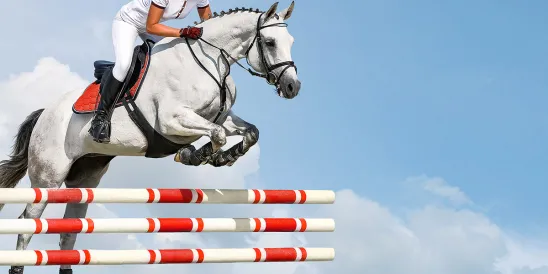In our last GT Alert, Immigration and the Equine Athlete: Coming to America, Part I, we discussed the most common visas available to foreign nationals who travel to America to compete in horse shows, eventing, polo matches and horse racing, such as the use of the Visa Waiver Program, the B-1 visa, the P-1A visa and the O1-A Extraordinary Ability visa. In Part II, we provide some detail on other types of visas available to equine athletes.
Nonimmigrant Work Visa
The nonimmigrant work visa is the type of visa that those equine professionals who will be paid by a U.S. employer and who plan to stay in the United States for some period of time must obtain. This visa involves a number of steps – the first of which is for the U.S. employer to file a petition with the United States Citizenship and Immigration Services (USCIS). Once the employer does so, and requests classification for the foreign national in a particular category (such as one of the visa categories discussed herein or in Part I), USCIS will review the petition. If the petition is approved, the equine professional who wants to work in the United States must apply for and obtain a visa from a U.S. embassy or consulate in his or her own country. That will lead to an in-person interview. If the visa is approved, it is possible for the foreign national to work in the United States for a U.S. employer for months or even years, subject to renewal of the visa.
B-2 Visa
Foreign-national equine athletes who are professionals cannot obtain a B-2 visa if they plan to compete in the United States, even if they will not be paid. The B-2 visa is commonly used by tourists, not for employment. Foreign-national equine athletes who hold amateur status may properly obtain this type of visa, but only if they are not employed by or compensated by a U.S. entity. If an amateur athlete obtains a B-2 visa to visit the United States, he or she may compete for prize money in an equine event but cannot accept any other form of compensation while in the country. The amateur athlete must be able to demonstrate that he or she has been invited to compete and has submitted an entry to the competition. The B-2 visa may be approved for a period of months, if the amateur athlete plans to compete in a number of events or throughout an entire season of the chosen sport.
P-3 Visa
Although the P-3 visa is most commonly used by those foreign nationals coming to America to teach or perform in a “culturally unique” program, it can also be used by equine athletes in certain circumstances. For example, if the equine professional plans to teach classes in a “culturally unique” discipline, he or she could obtain a P-3 visa. The equine athlete must demonstrate that he or she is qualified to teach such a culturally unique program, by demonstrating recognized past activities or letters of recommendation from experts in the field. The U.S. employer for whom the equine athlete plans to work must petition USCIS for the P-3 visa, which is good for up to a year and can be renewed.
J-1 Visa
The J-1 visa is one of the few visas by which equine industry barn personnel may work in the United States. Known as an “exchange visitor” visa, the J-1 visa requires a sponsoring organization and is commonly used for internships and training programs. The sponsoring organizations typically obtain these visas for students or younger foreign nationals who have worked in the equine industry in some capacity overseas and who wish to enter into a training program in the United States to further their careers. The J-1 visa program is administered by the U.S. Department of State. If the U.S. employer’s application on behalf of the trainee or intern is approved, the individuals must participate in an interview at a U.S. embassy or consulate in their home countries. The interns or trainees who obtain the J-1 visa may work in the United States for up to 18 months. This visa cannot be renewed.
Final Thoughts
The Biden administration has called for a “reset” of immigration policies promulgated by the previous administration. The Biden administration has proposed sweeping immigration legislation that would dramatically change the employment-based immigrant visa structure. The proposal does not advocate for changes in the nonimmigrant visa programs described above. It is unclear how the Biden administration policy reforms will ultimately impact the equine industry, but it seems evident that there will be more opportunities for legal immigration to the United States and that the agencies involved in U.S. immigration, including the Departments of Homeland Security, Labor, and State, will be more accommodating to the process. The Visa Waiver Program and the types of nonimmigrant work visas most popular in the equine industry do not appear – at least not currently – to be of much interest to the new administration and therefore may remain unchanged. The processing and administration of those visas may be more accommodating to the applicant and the sponsor.






 />i
/>i

